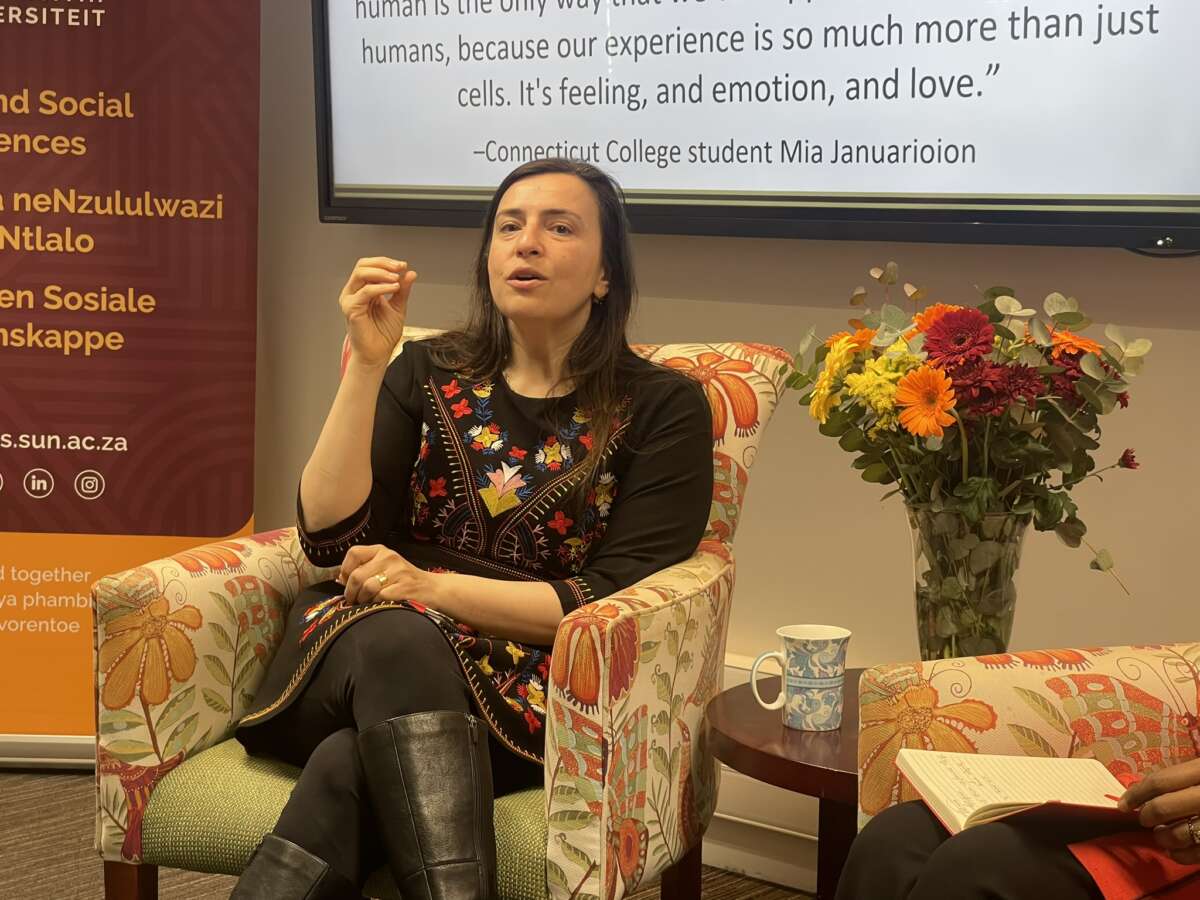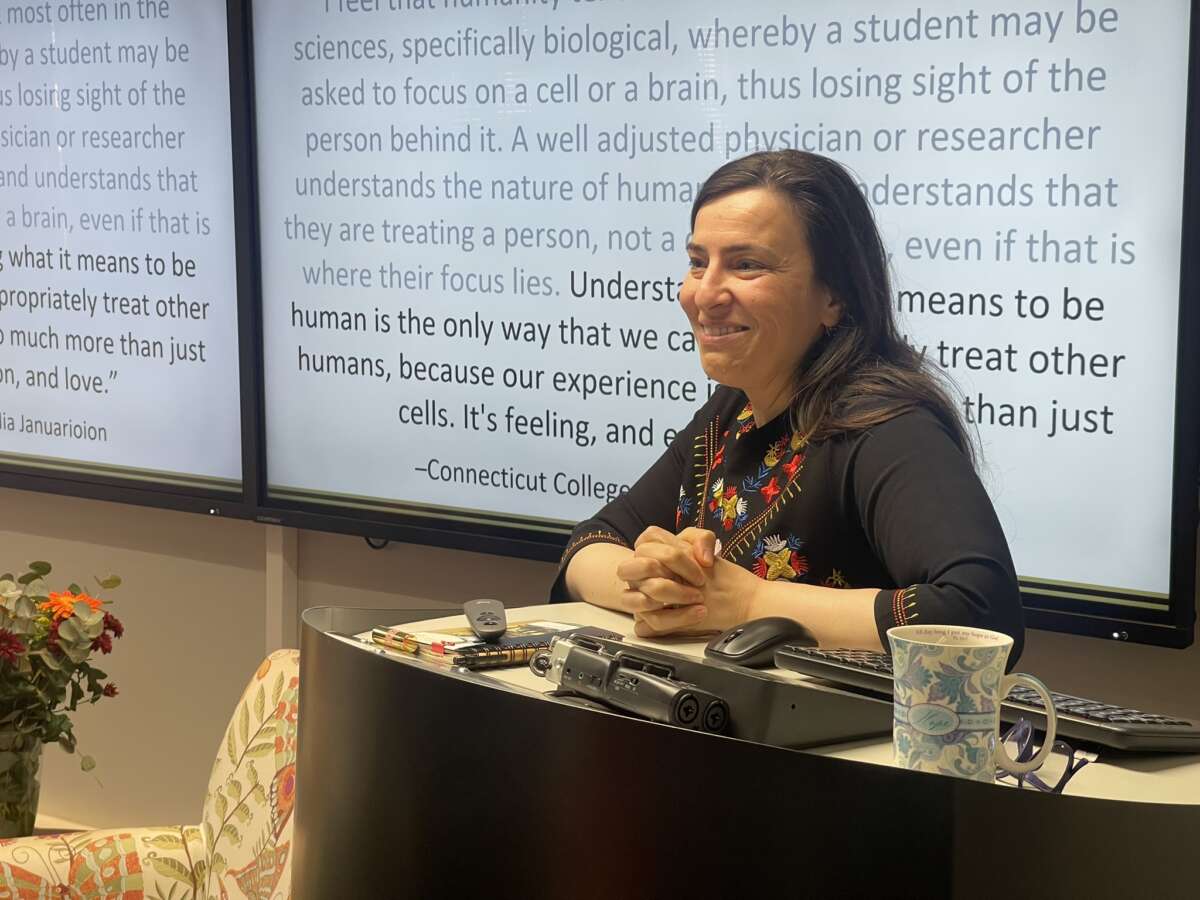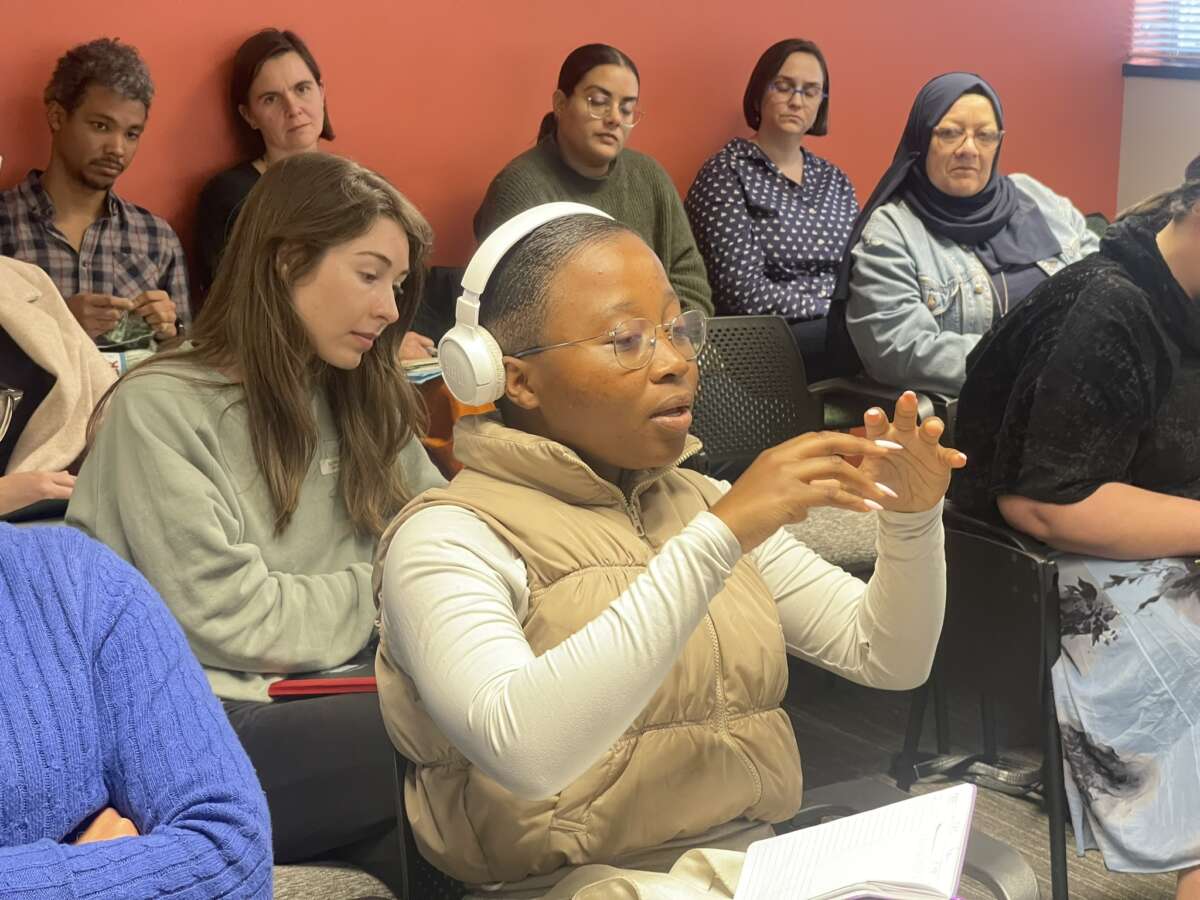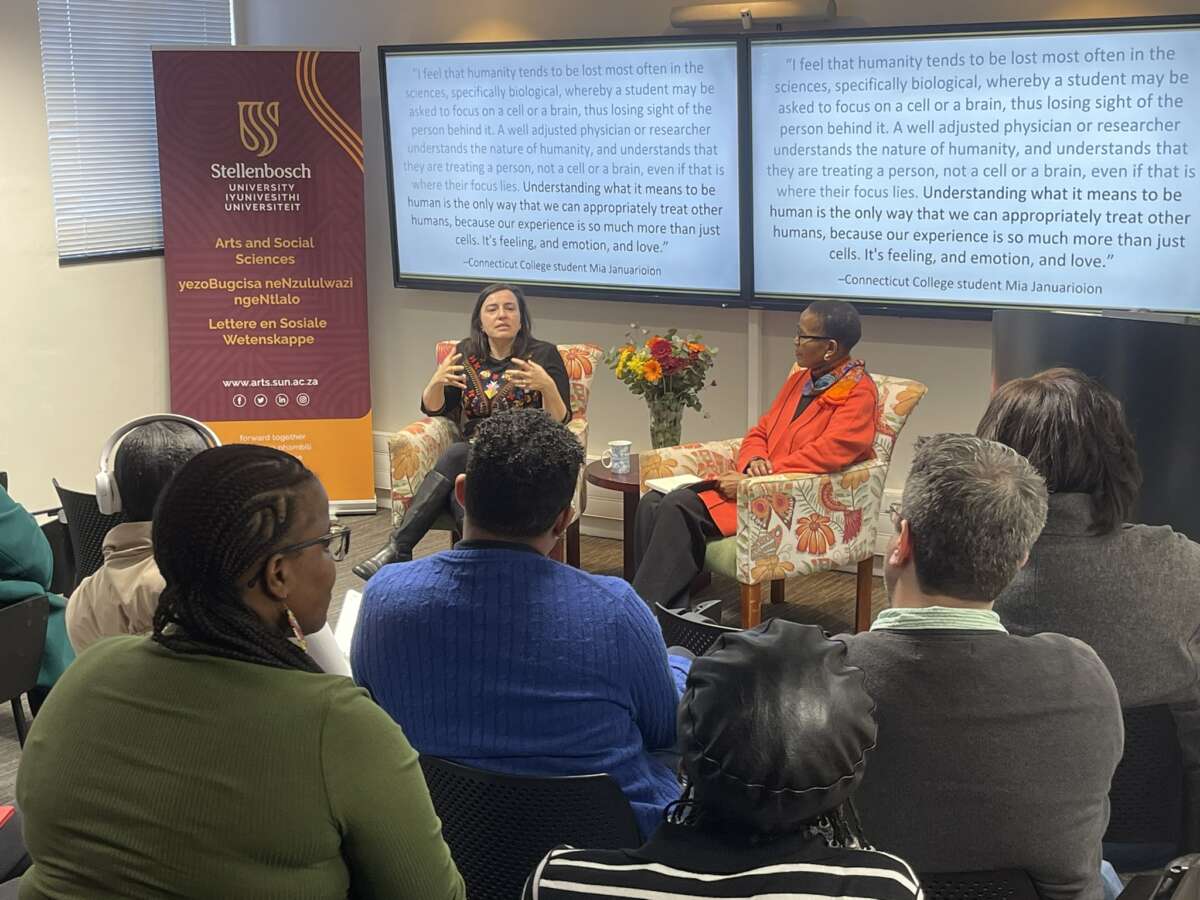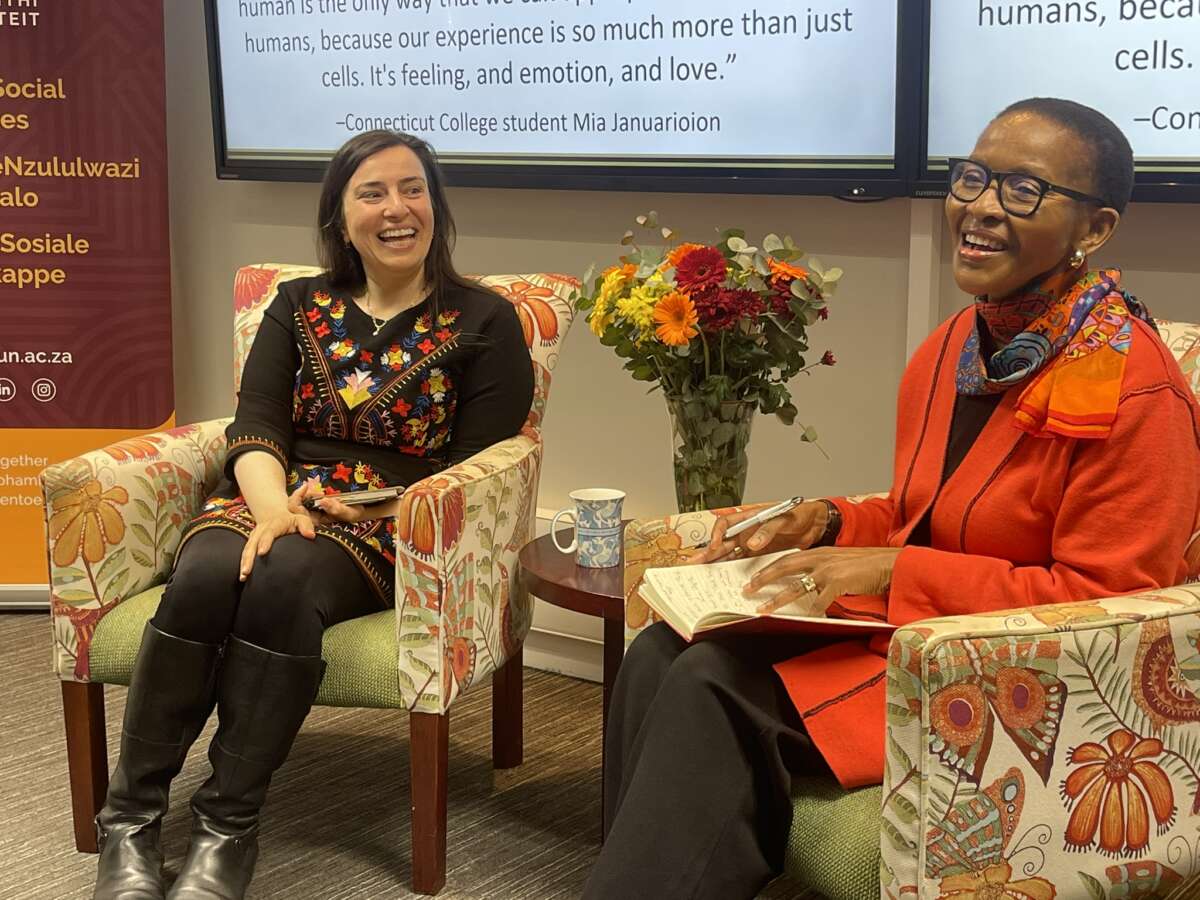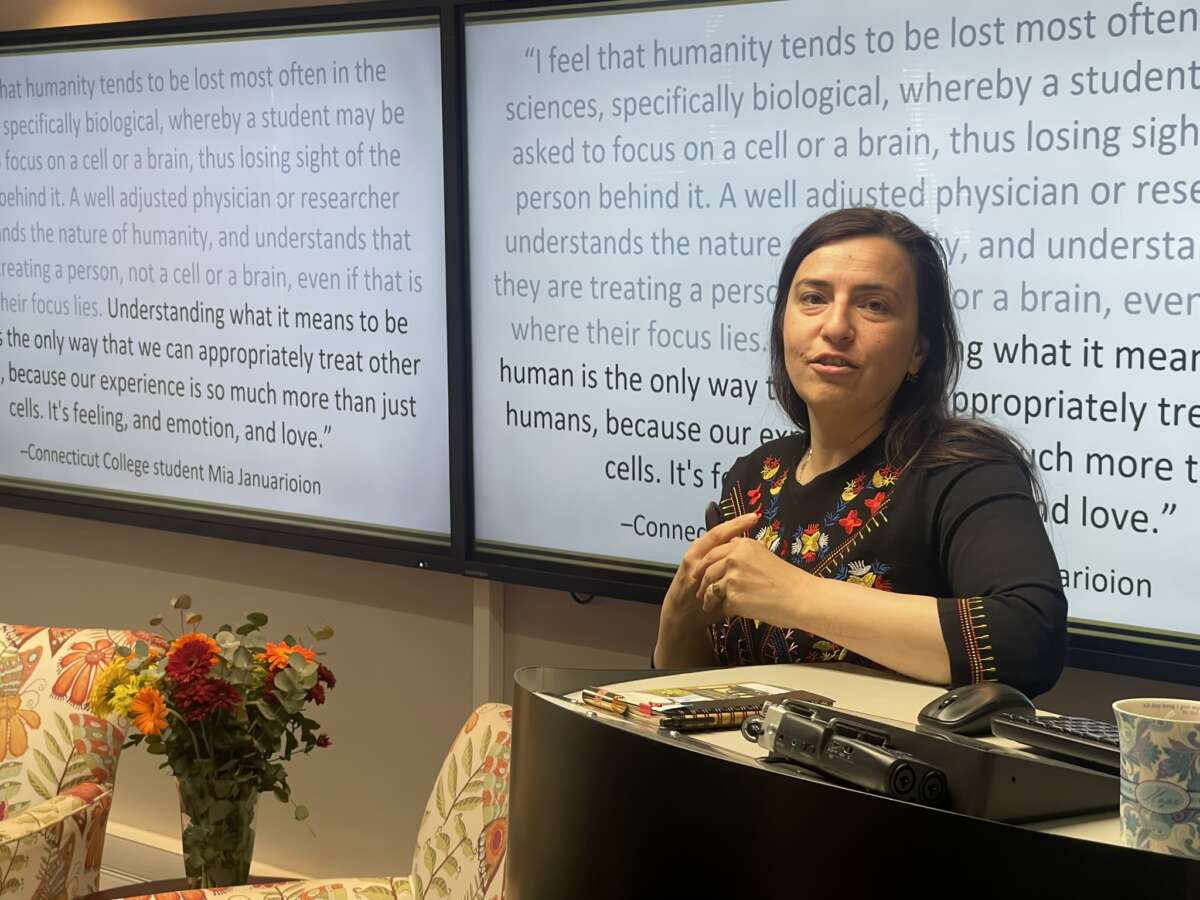Professor Mays Imad delivered a deeply engaging lecture on “Addressing Continuities of Trauma in Higher Education.” As a neuroscientist and educator, she seamlessly combined personal experiences, research, and student stories to highlight the lasting effects of trauma in academic spaces.
Prof Imad began with a touching story from her childhood in Baghdad, where she often asked her grandmother, “How do I know God is happy with me?” Her grandmother’s response, “All the people you meet and how they make you feel about the world is an indication,” set the tone for her presentation. This lesson—rooted in human connection—became a key theme of her talk. “The sense of hope for the future that my students and I were left with in South Africa stays with me,” she said, underscoring the importance of empathy in education.
As she explored the impact of the 2020 pandemic on students’ mental health, Prof. Imad identified key factors that contributed to heightened distress, such as pre-existing loneliness, isolation, and loss of routine. “The pandemic didn’t create trauma, but it made it more visible. It allowed us to finally talk about it,” she observed. Trauma, she explained, isn’t only individual but collective, affecting communities and institutions alike.
Prof. Imad also spoke about the physiological effects of trauma on the brain, sharing poignant quotes from students who struggled with their sense of identity and motivation. One student confessed, “Before the pandemic, I was a good student, but now, I don’t even know who I am.” This loss of self is a significant, often hidden consequence of trauma, and Prof. Imad urged educators to acknowledge it.
Her reference to Sylvia Wynter’s work on exclusion and racism in higher education further highlighted the systemic issues within academic institutions. “We need to ask ourselves: What does it mean to be fully human in a space that perpetuates exclusion?” Prof. Imad challenged the audience to rethink the role of education in nurturing humanity.
The heart of her message focused on creating supportive, resilient institutions. Prof. Imad emphasised the need for “institutional courage” — the boldness required of educational systems to acknowledge and dismantle practices that harm students and staff. “The responsibility isn’t on individuals to be resilient, but on the system to create spaces that foster resilience,” she asserted. In a moment that resonated with everyone present, Prof. Pumla Gobodo-Madikizela, the session’s moderator, noted, “We don’t often talk about love in academic settings, yet love is at the core of humanity and how we should treat one another.” This simple yet powerful observation encapsulated the warmth and empathy of Prof. Imad’s lecture, reminding us that education, at its best, is an act of care.
In response to audience questions, Prof. Imad encouraged educators to see students as bearers of their own knowledge, saying, “Everything I’m teaching you; you already know. You carry ancestral wisdom, and that needs to be acknowledged.” Her advocacy for a more human-centered approach to education was clear, particularly in her call for reimagining how we assess and support students.
As she concluded, Prof. Imad left the audience with a challenge: “We have a unique opportunity to create environments that support learning in a way that heals and transforms.” Her lecture served as a powerful reminder that educational institutions are more than just places of knowledge—they are spaces where trauma, healing, and humanity meet.
Workshops on Trauma-Informed Education: A Path to Healing and Growth
Prof. Mays Imad’s visit to AVReQ was not limited to her compelling lecture—her presence extended into a series of transformative workshops that explored trauma-informed education. In these workshops, Prof. Imad guided participants through the intricate ways in which trauma impacts both individuals and society at large. She framed trauma not just as a personal struggle but as a societal issue that deeply affects our ability to learn, grow, and engage fully with the world around us.
Drawing on her expertise, Prof. Imad challenged educators and administrators to rethink their roles in higher education, advocating for a holistic approach that acknowledges trauma’s effects on the biological, physiological, and psychological levels. “Educational institutions must go beyond academic goals,” she emphasised, urging a shift toward fostering moral and spiritual enrichment to nurture well-rounded individuals.
The workshops explored how integrating trauma-informed care into teaching and leadership practices could break the cycles of trauma that hinder students’ potential. Participants were encouraged to adopt a paradigm shift, one that puts empathy, care, and healing at the core of the educational experience. As Prof. Imad reminded those in attendance, higher education has the power not just to shape minds but to heal them, creating a supportive environment where meaningful learning and personal development can truly thrive.
